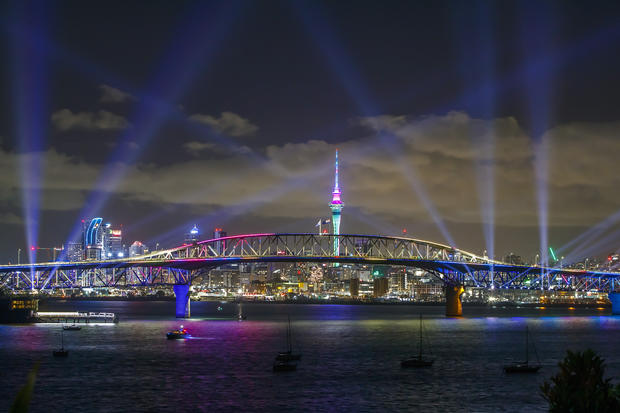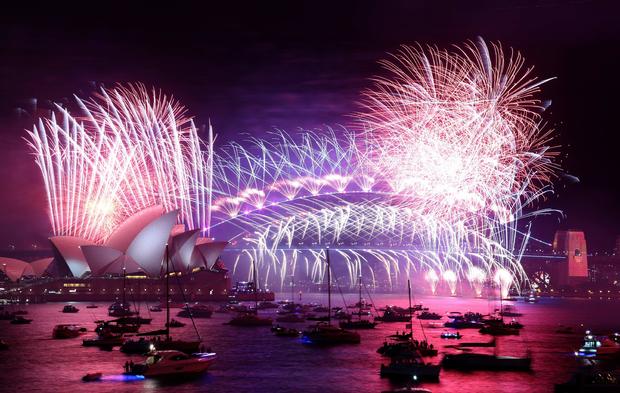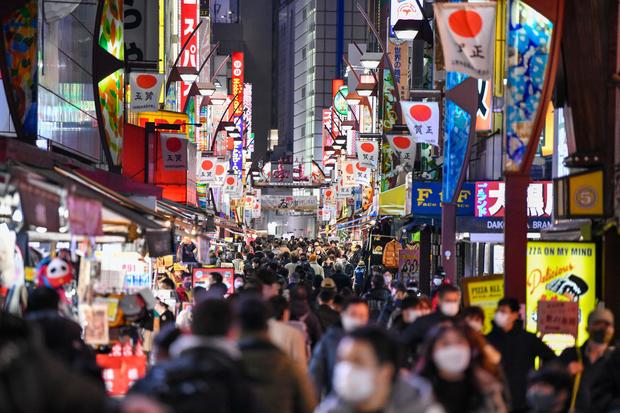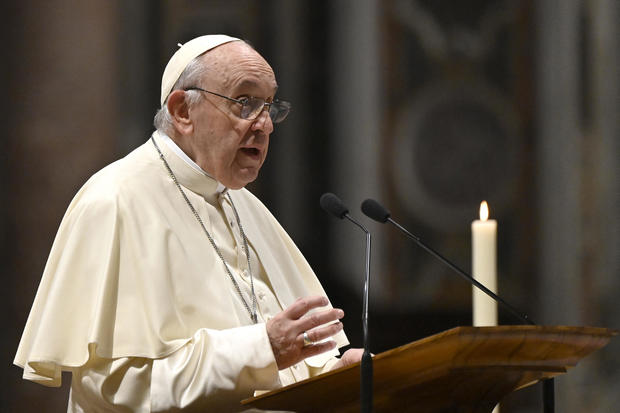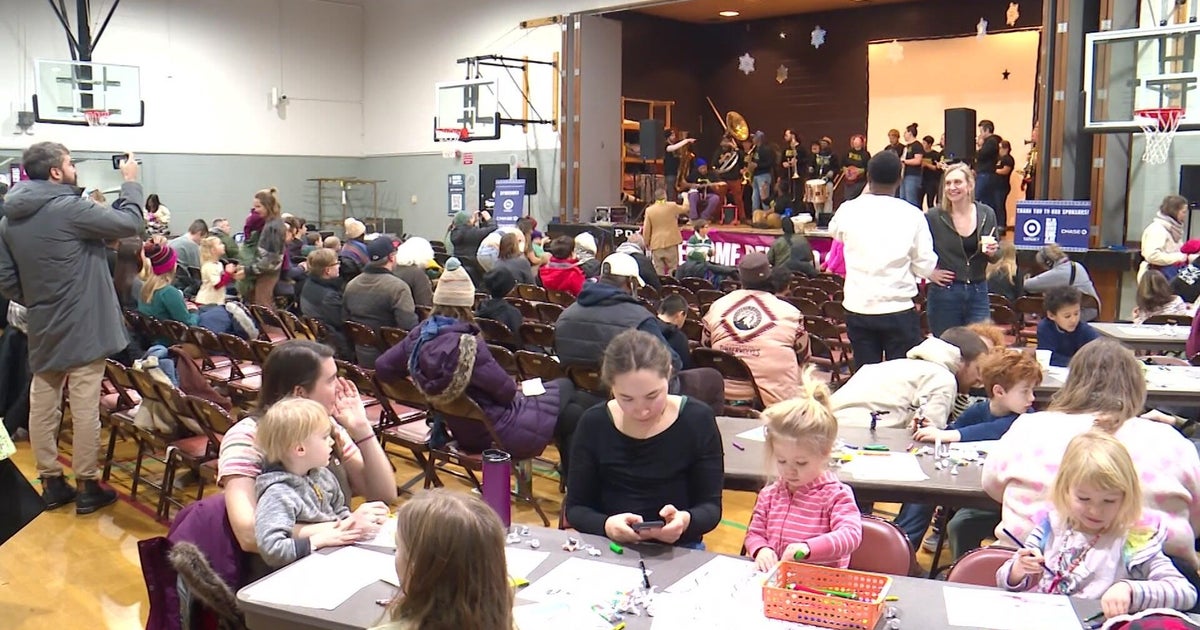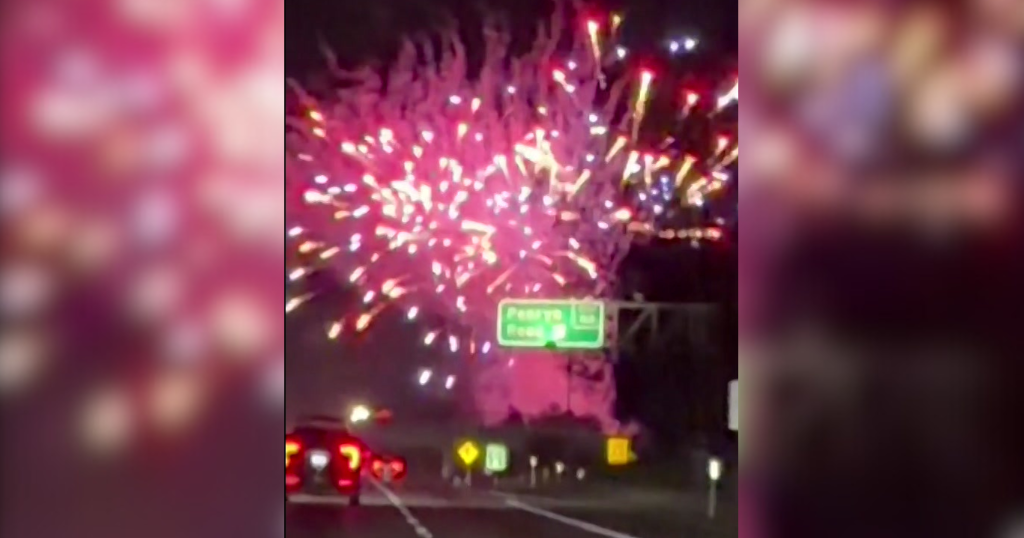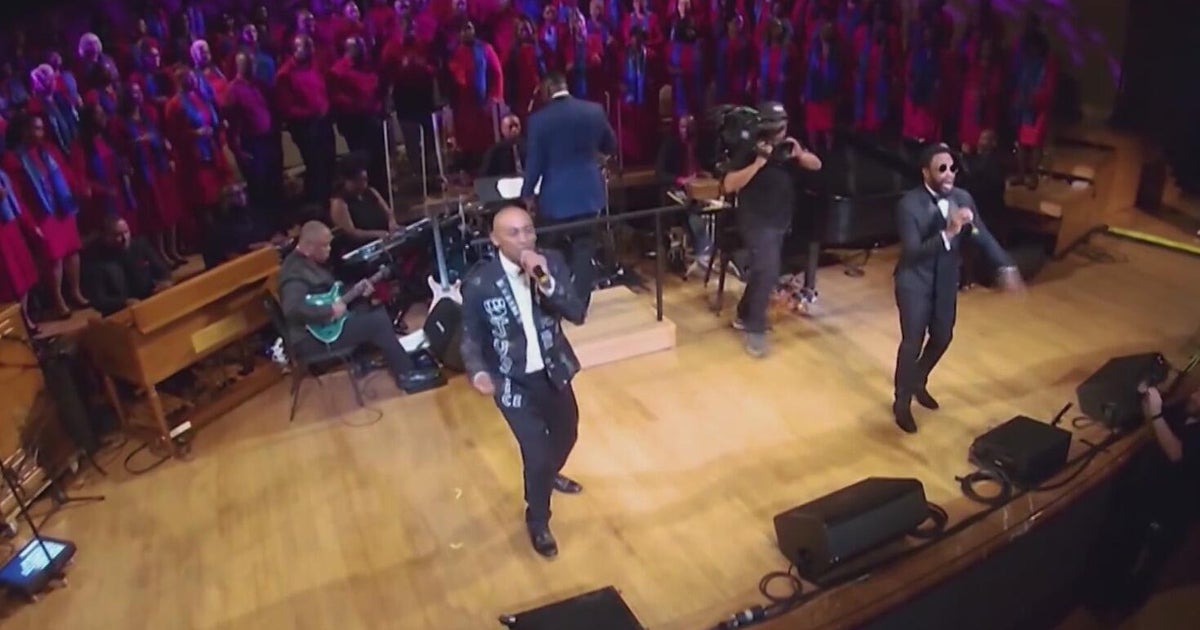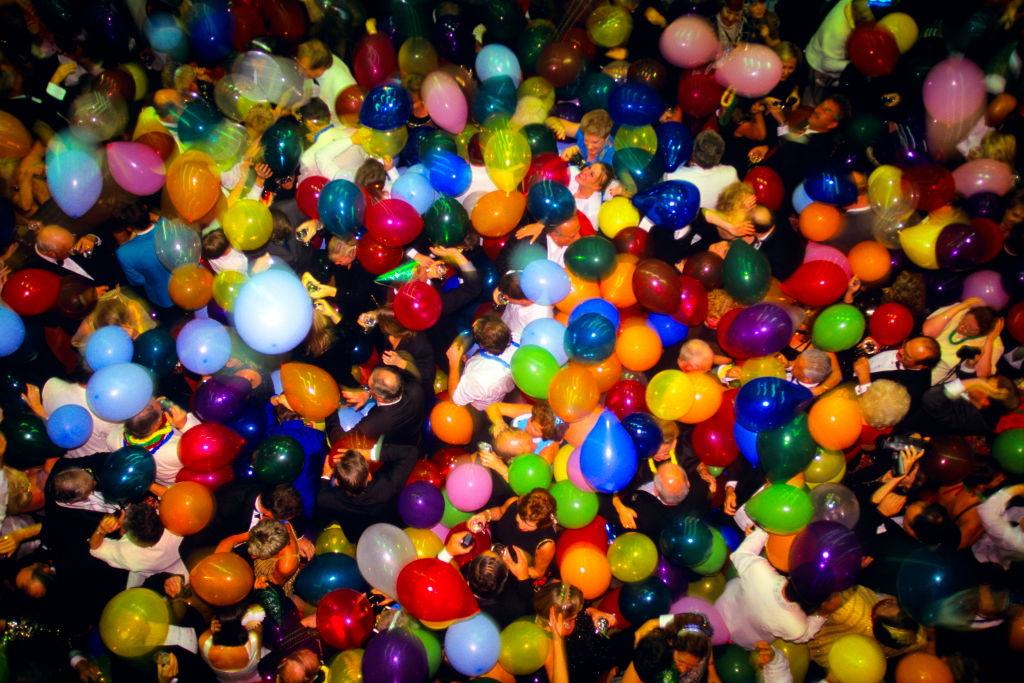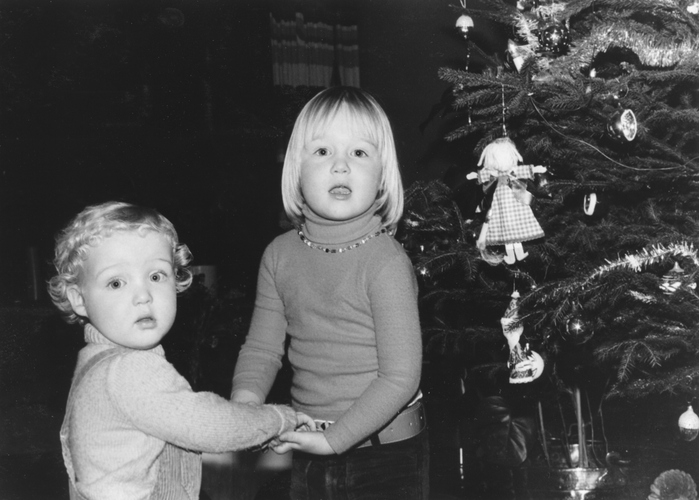Toned-down New Year's Eve celebrations as the world welcomes 2022 under an Omicron-shaped COVID shadow
Wellington, New Zealand — Good riddance to 2021. Let 2022 bring fresh hope. That was a common sentiment as people around the world began welcoming the new year.
In many places, New Year's Eve celebrations were muted or canceled for the second straight year due to a surge of coronavirus infections, this time driven by the highly contagious Omicron variant. But even before Omicron hit, many people were happy to say goodbye to a second grinding year of the pandemic.
So far, at least, the Omicron surge hasn't resulted in the same levels of hospitalizations and deaths as previous outbreaks — especially among vaccinated people — offering a glimmer of hope for 2022.
Because of where the international date line sits, countries in Asia and the Pacific region are among the first to usher in each new year, and New Zealand was one of the first places to welcome 2022, with a low-key lights display projected onto Auckland landmarks, including the Sky Tower and Harbor Bridge. That replaced the traditional fireworks show.
While there hasn't yet been any community spread of Omicron in New Zealand, authorities still discouraged crowds gathering.
Australia went ahead with its celebrations despite an explosion in virus cases. The centerpiece of festivities was the renowned fireworks display from the Sydney Harbor Bridge and Sydney Opera House. The show went on, lasting about seven minutes, but access to downtown Sydney was restricted to those with bookings at restaurants and hotels in order to limit the spread of COVID-19.
Hours before the celebrations were due to begin, Australian health authorities reported a record 32,000 new virus cases, many of them in Sydney. Because of the surge, authorities expected far smaller crowds than in pre-pandemic years, when as many as 1 million revelers would crowd inner Sydney.
Celebrations were banned in Tokyo's glittering Shibuya entertainment district, and Japanese Prime Minister Fumio Kishida took to YouTube to urge people to wear masks and limit numbers at parties.
But some people appeared to shrug off virus fears by dining and drinking raucously in downtown Tokyo and flocking to shops, celebrating not only the holidays but a sense of exhilaration over being freed from recent virus restrictions in the country.
Across Japan, many people planned to take new year trips to spend time with their families.
China, where the coronavirus first emerged in late 2019, was on high alert and canceled formal New Year celebrations. As CBS News correspondent Ian Lee reported, 13 million people in the city of Xi'an saw in 2022 under strict lockdown, as the country deals with its latest outbreak of COVID-19.
The coronavirus was casting a long shadow over much of Europe's celebrations, meanwhile.
In London, Big Ben was to usher in the new year for the first time in four years after restoration work was completed. But CBS News' Lee said many cities in Britain weren't holding traditional concerts or fireworks shows as COVID-19 cases soar to record highs.
Italy canceled public parties after it, too, hit a record number of new infections. In Rome, locals and tourists quickly got tested before meeting friends and family.
Pope Francis also canceled his traditional New Year's Eve visit to the Nativity scene in St. Peter's Square at the Vatican, with officials saying the pontiff wanted to discourage crowds. The pope still delivered a Mass during the first Vespers and Te Deum prayer at St. Peter's.
But the fear of yesteryear seemed to have been tentatively replaced by a new optimism.
"I am not at all worried," said Mark Hanly, a tourist visiting the Italian capital from the U.K. - "We have lots of vaccines."
Heather Baumgartner, visiting Rome from the U.S., was also upbeat: "I am confident that we'll get over this and everything will be ok."
